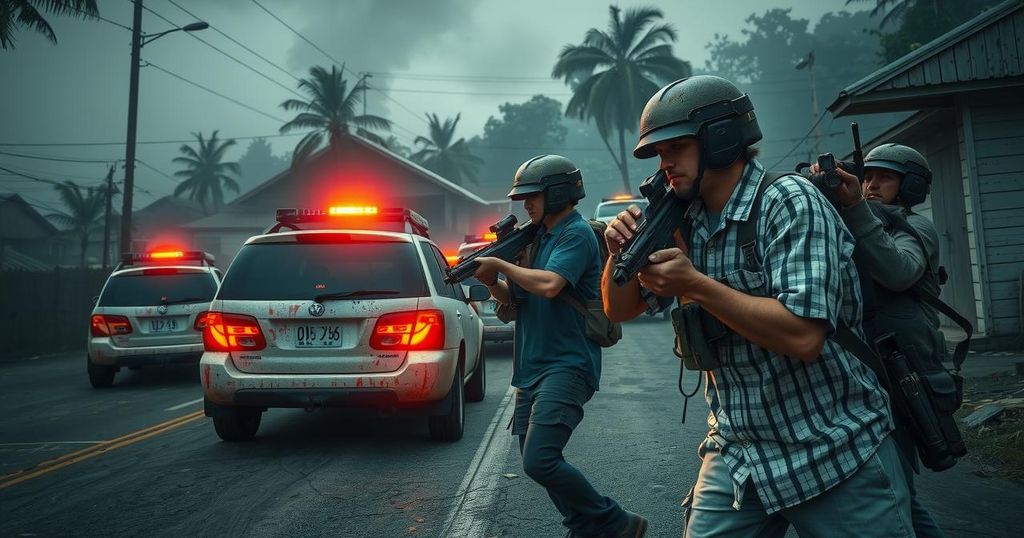Escalating Conflict: M23 Rebels Capture Key Towns in Eastern Congo

Rebels from the M23 group have captured two key towns in eastern Congo—Masisi and Katale—heightening an already severe humanitarian crisis, with local leaders condemning government inaction amid accusations of Rwandan support for the rebels. Reports of violence and civilian displacement continue to rise as fighting resumes despite a recent ceasefire agreement.
In a significant escalation of conflict, rebels affiliated with the M23 group have taken control of two crucial towns, Katale and Masisi, in eastern Congo. This development has intensified the ongoing security and humanitarian crisis within the region. Local authorities and civil society representatives reported that these towns are pivotal for the rebel group, particularly Masisi, which lies approximately 80 kilometers west of Goma, the provincial capital.
Lawrence Kanyuka, the political spokesman for the M23, asserted via social media that his group has successfully captured Masisi. He emphasized the M23’s commitment to civilian protection amidst the turmoil. However, local political figures like Alexis Bahunga have confirmed the shift in territorial control, highlighting the dire situation: “The humanitarian situation is so catastrophic.”
As civilians flee, reports indicate that many are seeking refuge in surrounding villages, exacerbating fears for their safety. Bernard Kanyama, a resident of Bweremana near Masisi, reported witnessing direct violence: “We saw even yesterday two people who died when the rebels fired a bomb in Bweremana.”
Compounding the regional instability, there are persistent accusations from both the Congolese government and the United Nations regarding Rwandan support for the M23. Although Rwanda has denied these allegations, it admitted in February to deploying troops in eastern Congo under the pretext of maintaining security, further complicating the matter. U.N. specialists estimate that as many as 4,000 Rwandan troops may be stationed in the country.
Despite a ceasefire agreement reached earlier this year, which officially commenced operation in August, hostilities have resumed, drawing the concern of the United States regarding the ongoing violations perpetrated by M23 forces. Such developments have led to increasing frustration among civil society leaders, who criticize the government’s perceived inaction during this escalating crisis.
The situation in eastern Congo is characterized by a multitude of armed groups vying for control over the mineral-rich territory, which has resulted in one of the largest humanitarian crises globally, displacing over seven million people. The M23 group is among the most notable rebel factions, previously involved in conflict with Congolese forces. The complex dynamics of regional politics have further exacerbated the conflict, with allegations of Rwandan support for the M23 leading to severe tensions. A ceasefire signed in July was intended to alleviate hostilities but has proven ineffective as fighting has escalated once more.
The seizure of Masisi and Katale by the M23 rebels reflects a troubling escalation in the ongoing conflict within eastern Congo, underscored by a deepening humanitarian crisis. With significant civilian displacement and continual violence, local leaders are expressing grave concern over the government’s handling of the situation. As international scrutiny grows, the need for a sustainable resolution and humanitarian assistance becomes increasingly critical.
Original Source: apnews.com








